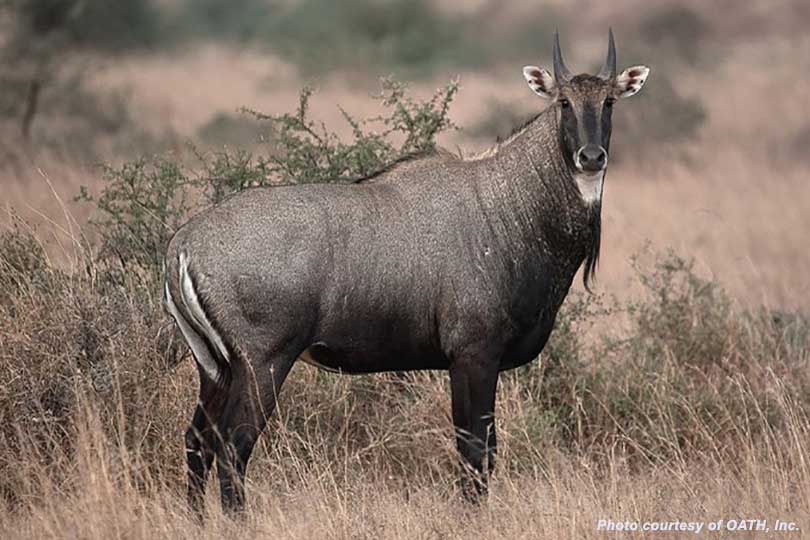Potential hosts of fever ticks in South Texas include cattle, horses, white-tailed deer and exotic hoofstock, such as red deer and nilgai.
Nilgai, in particular, present unique challenges to state animal health officials trying to eradicate the tick and the disease they carry.
State Veterinarian Dr. Andy Schwartz told Texas Farm Bureau members meeting recently in Horseshoe Bay that the antelope species from India covers large distances in its natural movements, spreading the disease.
“They are very capable hosts of carrying the fever tick and perpetuating the fever tick. In fact, they are as efficient as a cow, as far as carrying these fever ticks,” Schwartz said. “We worked together with Agricultural Research Service and a ranch in South Texas, and we put some satellite collars on some nilgai. Some of those animals, as soon as they were released after being placed with a collar, ran 15 miles in just a few hours.”
Schwartz said the nilgai, as large as 600 pounds, don’t tend to jump a fence. They, instead, push under it, using a space under a game fence or a pasture fence created by a feral hog, perhaps, and then they work to enlarge the hole and go where they want to.
The ticks are capable of carrying the protozoa or microscopic parasites commonly known as cattle fever. The organism attacks and destroys red blood cells, causing acute anemia, high fever and enlargement of the spleen and liver, ultimately resulting in death for up to 90 percent of susceptible native cattle.

